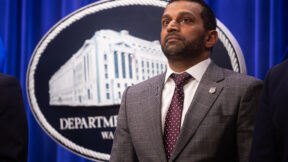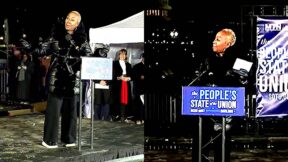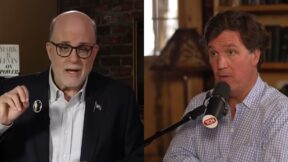ESPN’s Selective Silence: Dodging The Roethlisberger Story Is A QB Sneak
 It was during my daily morning subway scan of the New York Post on Tuesday that I first learned that Pittsburgh Steeler quarterback Ben Roethlisberger was the subject of a civil lawsuit, filed by a casino hotel worker in Lake Tahoe, that accused the two-time Super Bowl champ of forcing her into sex after a celebrity golf tournament in 2008.
It was during my daily morning subway scan of the New York Post on Tuesday that I first learned that Pittsburgh Steeler quarterback Ben Roethlisberger was the subject of a civil lawsuit, filed by a casino hotel worker in Lake Tahoe, that accused the two-time Super Bowl champ of forcing her into sex after a celebrity golf tournament in 2008.
The situation had shades of Kobe Bryant, as these things unfortunately tend to do, and the article outlined a number of the the ugly details from the women’s claim. But relative to the Post‘s typical sensationalism, the reporting was generally spare, giving ample space to the firm denial issued by Roethlisberger’s attorney.
Even non-tabloid readers heard quickly about the allegations, with varying degrees of specificity, from any number of outlets: CBS Sports, Fox Sports, NBC’s Pro Football Talk, the Washington Post, and just about any operation fed by the Associated Press wire. There was one glaring exception: the self-proclaimed World Wide Leader in Sports, ESPN.
Devoid of any significant developments after it initially broke, the Roethlisberger story itself was soon overshadowed by the more interesting (and, possibly, more substantive) one: why had ESPN completely ignored the news, even going so far as to issue a company-wide “DO NOT REPORT” memo on Monday night as the story was first breaking?
The media put forth any number of theories to explain the radio silence coming from Bristol. Some were conventional (ESPN didn’t want to damage its good standing with and access to a marketable and successful athlete until knowing all the facts), others cynical (parent company Disney put the kibosh on the news because Roethlisberger is set to appear in a new show, Shaq vs., on Mouse-owned ABC in which Shaquille O’Neal competes against athletes in other sports) and others conspiratorial (both Roethlisberger and Brett Favre, for whom the network last year issued a similar DO NOT REPORT memo on a separate matter, are white).
But the explanation coming from inside the house skewed procedural. “At this point, we are not reporting the allegations against Ben Roethlisberger because no criminal complaint has been filed,” the network said in a statement. “As far as we know, this is a civil lawsuit that Roethlisberger has yet to address publicly.”
Setting aside the undermining absurdity of an outlet issuing an official statement acknowledging their deliberate avoidance of a story — a sort of journalistic fingers-in-ears “I can’t hear you!” — the explanation itself was weak, as many soon noted. It was just over a month ago, for example, that ESPN ran a story with this lede: “Los Angeles Lakers point guard Shannon Brown has been notifed of an intent to sue him in civil court for an alleged sex-related incident with a woman in Denver, Brown’s agent, Mark Bartelstein confirmed to ESPN’s Shelley Smith on Sunday.” Sound similar?
After a few amusing head-fakes — “ESPN Breaks Its Silence on Ben Roethlisberger”, Deadspin’s Dashiell Bennett wryly reported when a rogue newswire feed auto-added a sentence about the allegations to Roethlisberger’s fantasy football player profile page — ESPN finally released news about the case, publishing the Associated Press’s report that Lake Tahoe authorities would not pursue criminal charges. It was little, late, and lame.
Last year, I followed closely the ongoing murmurs about John Edwards and Rielle Hunter. Like athletes, politicians are particularly vulnerable to smear campaigns from unsavory characters, whether designed to damage reputations or extract money or influence. The press knows this, so these types of stories tend to broil in what Mickey Kaus terms the “undernews” — the murky swirl of whispers, did-you-hears and tips that populate the blogosphere and tabloids but that have yet to find traction in the larger mainstream media — before being elevated to the awkward purgatory in which the focus becomes not the presence of the story itself but rather the absence of its coverage.
This is not to say that ESPN should be in the business of advancing sordid rumors. Certainly, unsubstantiated allegations of sexual assault are uniquely fraught, and the network itself has drawn fire in the past for overzealous coverage of delicate stories like the Duke lacrosse scandal. And ESPN’s handling of some matters, like the Erin Andrews images that were also present in the pages of my Tuesday morning Post, was indeed appropriate. (Albeit harsh: I doubt that Kevin Kernan and Lenn Robbins, two collaterally damaged Post writers now banished from their regular appearances on ESPN’s “First Take”, had much involvement with the editorial decision to run an Internet slideshow of large and barely-censored photos of Andrews.)
But I digress. Incoming Ombudsman Don Ohlmeyer, former producer of Monday Night Football among many other things, sure has his work cut out for him. With the Edwards whispers, the mainstream media had the fleeting luxury of sneering at the early sources, particularly the National Enquirer, as crackpot and irresponsible. (That the Enquirer ultimately turned out to be right proved embarrassing for some of the haughtier outlets and raised many a question about what the tipping point should have been, especially in light of Edwards’ presidential candidacy.) But ESPN can’t make such a claim; nearly all of its competitors had announced at least a token something on the matter, including sister network ABC Sports. Even NFL Commissioner Roger Goodell made a statement about the suit, making it a genuine sports story worthy of coverage.
An NFL player who grabs another’s facemask may not be whistled for a foul, but the player who trips him in retaliation always will. So too with ESPN: its blanket refusal to budge for days on the Roethlisberger story brought it far more attention than a standard small sidebar link to the AP release and a terse mention on SportsCenter would have.
Yesterday, ESPN executive editor John Walsh spoke on Dan Patrick’s radio show, clarifying that the network evaluates civil lawsuit coverage on a case-by-case basis and adding that the nature of the blogosphere has forced the network to reconsider their protocol. While I find this a positive, the Miami Herald‘s Dan Le Batard, in praising the network for its restraint, complained that “the need to get the conversation going in the instant-media age has usurped the need to have the conversation be fair or human or empathetic.”
This is surely true. But it’s also a dodge. Because if ESPN refuses to join the conversation, how can they ever expect to improve it?
Katie Baker has contributed to Gawker, the Yale Daily News, Young Manhattanite, and US College Hockey Online. Her blog can be found here. She also has a day job.
This is an opinion piece. The views expressed in this article are those of just the author.
New: The Mediaite One-Sheet "Newsletter of Newsletters"
Your daily summary and analysis of what the many, many media newsletters are saying and reporting. Subscribe now!






Comments
↓ Scroll down for comments ↓